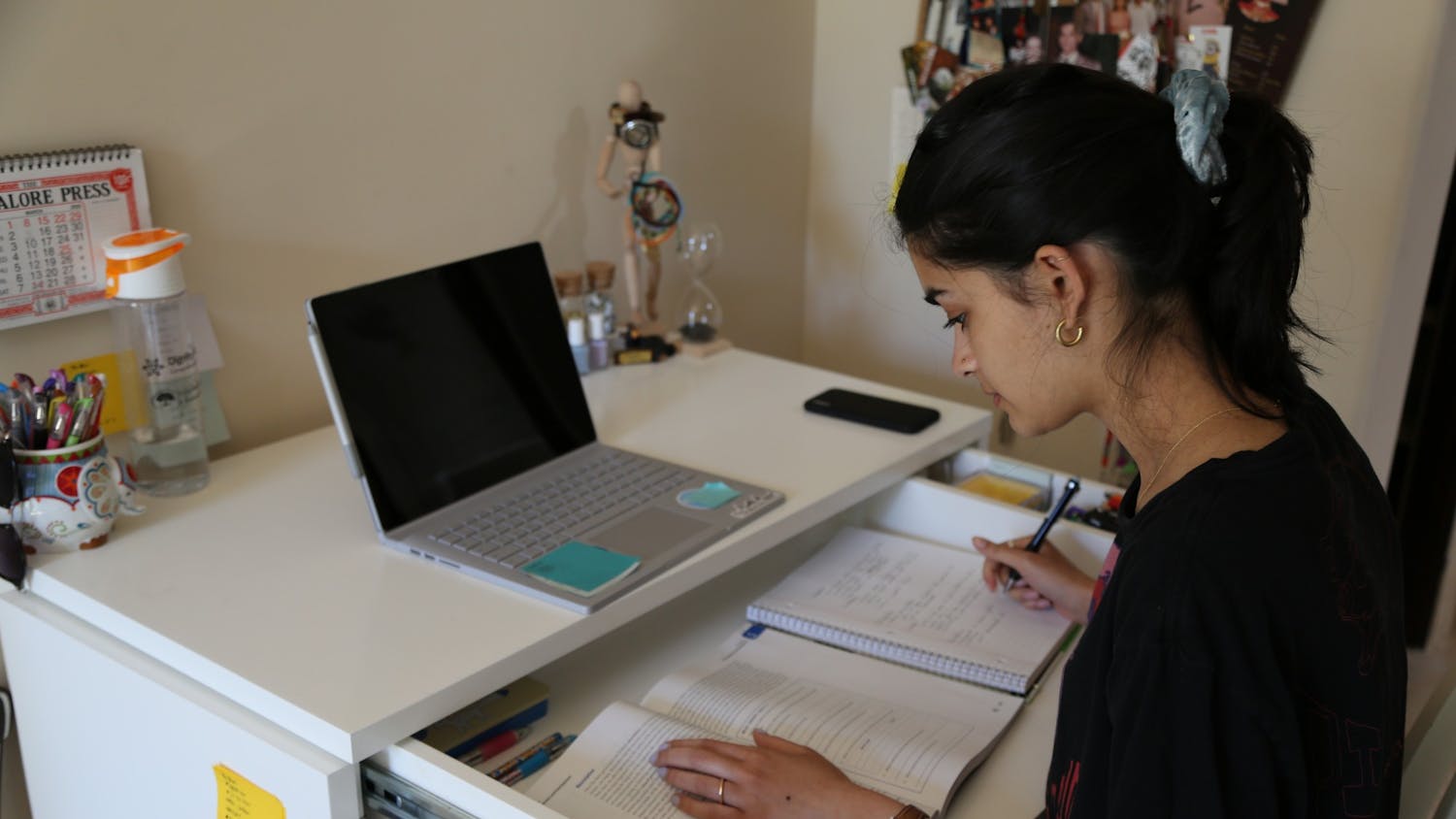Dartmouth’s move to remote learning has left both students and professors with questions about how spring classes will unfold. The College has kept open the possibility that students may return to campus in May, but provost Joseph Helble warned that students should not expect to return to campus this upcoming term.
“I am asking the campus to recognize that there is a high probability that the entire spring term will be offered through remote learning,” Helble said.
For the first half of spring term, students will take their classes remotely in light of the COVID-19 outbreak. Despite the online format, Helble said that students will pay full tuition, as “the faculty will be paid to do the workload of teaching a full course.”
More information on housing and meal plan refunds will be announced before the deadline to pay tuition, which has been extended from March 16 to March 23, according to Helble.
Spring term classes will start on March 30 as originally planned, according to Dean of the College Kathryn Lively. Meanwhile, faculty, department heads and administrators are working to determine what a remote format could mean for their classes.
“This idea has just really been broached with the faculty,” Lively said. “These details are being ironed out.”
Associate dean for the social sciences and government professor John Carey said professors will spend the weeks before the first day of classes working to move their classes online. Part of that process includes exploring the platforms available to them, including Zoom — a video conferencing technology, TechSmith Relay — an online platform for recording and sharing lectures and Canvas — an online class organization software already integrated into many Dartmouth classes.
Carey said that he is excited about the tools these platforms offer, but he is largely unfamiliar with all of the programs except Canvas.
“I’ve just never done it before,” Carey said. He said that instructional designers are working with faculty and department chairs to ease the transition to remote classes.
Vice president of information, technology and consulting Mitchel Davis said IT personnel already have some experience in developing online learning programs. Recently, the Tuck School of Business and the Thayer School of Engineering have been testing and implementing programs that offer remote learning options.
“We’ve been talking about wanting to deliver online education, or at least some facsimile of that at Dartmouth for some time,” Davis said.
According to assistant director of learning design and technology Erin DeSilva, the College has experience with all three of the platforms that will be used, especially Canvas, but will still have to adjust to the new online format.
“Our model has been very focused on face-to-face delivery, which means we are underprepared for this situation,” she said.
The timing of Dartmouth’s spring break has given IT staff at the College more time to make the transition than some of their peers at other institutions.
“A well-designed online class takes months to develop, not weeks,” DeSilva said. “And we are lucky to have weeks. Many of our colleagues have had hours or days to make this switch.”
Course planning in the upcoming weeks will focus primarily on two goals, according to DeSilva: delivering the course content to students and building community. She said faculty members will have to consider what types of technology can help them achieve those goals.
Davis added that the tight timeline — just 16 days until classes are scheduled to start — adds another challenge to organizing the necessary tools.
Lively said the College remains “committed to ensuring that there's academic continuity,” but that not all classes will necessarily be offered as planned. Some professors may choose to offer similar, alternative classes to what had previously been scheduled, she said.
The College has asked professors to “explore every option” to adapt their classes, according to Carey. He said they’re working to figure out “what they can deliver intact” versus “what kind of new strategies they need to be thinking about,” including assignments and classroom interaction.
“It's a new world for everybody,” Carey said.
The switch to an online format now poses a unique challenge to studio art professor Colleen Randall, whose coursework relies heavily on hands-on, experiential learning.
Randall, who intends to teach SART 15, "Drawing I" and SART 031, "Painting II" in the upcoming term, noted that a lack of access to materials and adequate space would particularly constrain her classes.
“Obviously, the courses will not be the same experience that you would have if you were on campus,” she said. “What we’re working on is providing some sort of equivalent experience.”
While Randall noted that she is awaiting further information regarding the resources that will be available to her in the upcoming term, she said that those within the studio art department have entertained the idea of creating an online system for students to purchase materials for their classes. However, she said that it is unclear how financial aid for such a system would function at this time.
In the context of his government classes, Carey said he was most curious to see how student participation would work.
“We've moved so fluidly between lecture mode and discussion mode [in my in-person classes],” he said. “That's a luxury.”
Carey said he is considering having multiple discussion sections meet over video calls, separate from calls designated for lectures. He added that other challenges include working with time zones and students without reliable internet connection.
DeSilva said that professors will have the option to offer “synchronous” class meetings, in which all students would join the same call to attend class live. She anticipates, however, that many will pre-record their lectures so that students can watch them at a time that fits their schedules. Students can then participate “asynchronously” using tools such as the Canvas discussion board.
Students can expect more information about the structure of their classes from their professors in the coming days, Carey said.
DeSilva said that the Information, Technology and Consulting department and the Dartmouth Center for the Advancement of Learning will be publishing a guide to remote learning that will be available to students before online classes begin. She said the guide will address issues such as potential problems with internet connection.
“What we’re asking students to do is think about what their habits can be, like when you can get to the library if you don’t have internet at home,” she said.



